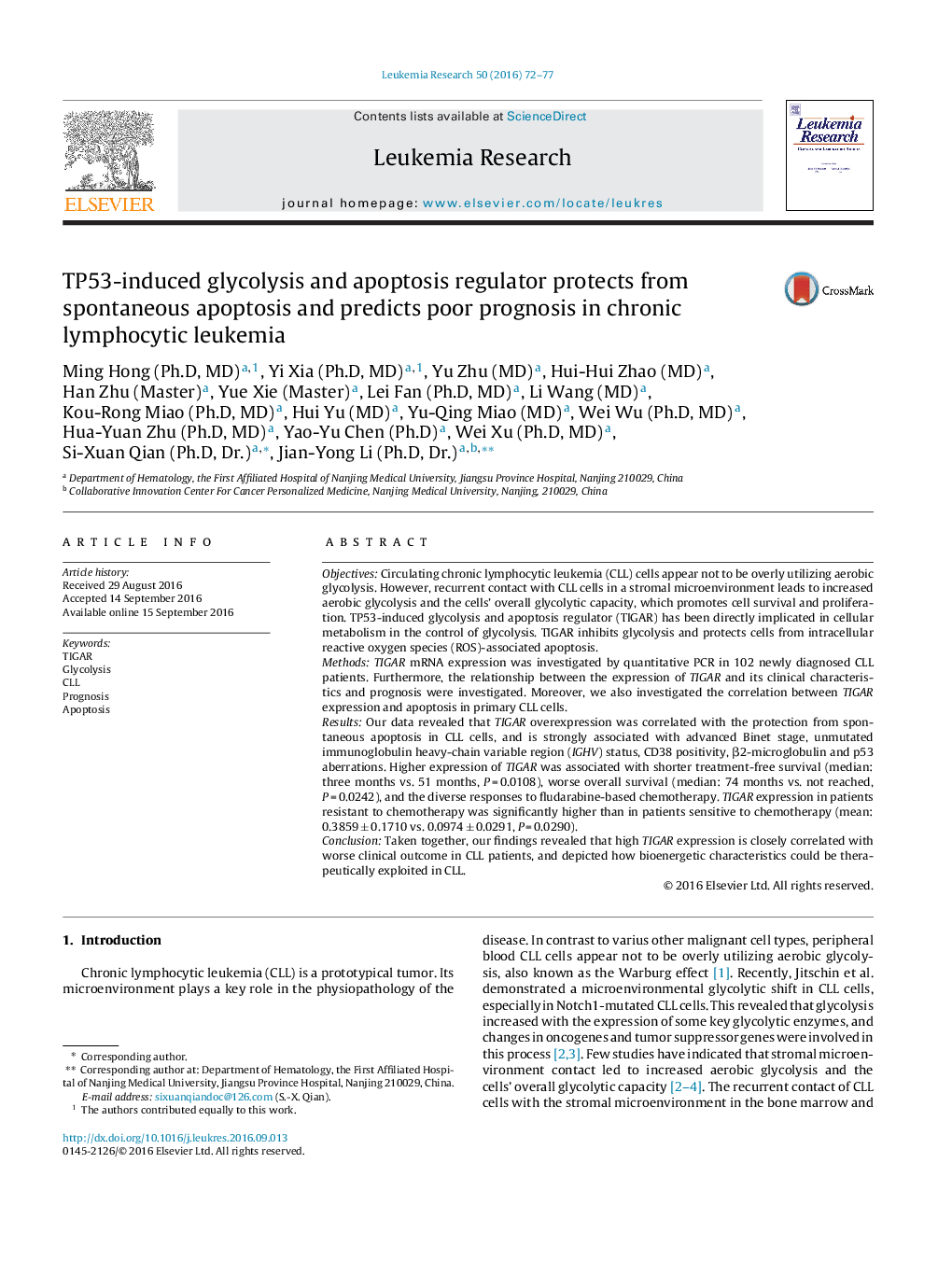| Article ID | Journal | Published Year | Pages | File Type |
|---|---|---|---|---|
| 5527856 | Leukemia Research | 2016 | 6 Pages |
ObjectivesCirculating chronic lymphocytic leukemia (CLL) cells appear not to be overly utilizing aerobic glycolysis. However, recurrent contact with CLL cells in a stromal microenvironment leads to increased aerobic glycolysis and the cells' overall glycolytic capacity, which promotes cell survival and proliferation. TP53-induced glycolysis and apoptosis regulator (TIGAR) has been directly implicated in cellular metabolism in the control of glycolysis. TIGAR inhibits glycolysis and protects cells from intracellular reactive oxygen species (ROS)-associated apoptosis.MethodsTIGAR mRNA expression was investigated by quantitative PCR in 102 newly diagnosed CLL patients. Furthermore, the relationship between the expression of TIGAR and its clinical characteristics and prognosis were investigated. Moreover, we also investigated the correlation between TIGAR expression and apoptosis in primary CLL cells.ResultsOur data revealed that TIGAR overexpression was correlated with the protection from spontaneous apoptosis in CLL cells, and is strongly associated with advanced Binet stage, unmutated immunoglobulin heavy-chain variable region (IGHV) status, CD38 positivity, β2-microglobulin and p53 aberrations. Higher expression of TIGAR was associated with shorter treatment-free survival (median: three months vs. 51 months, P = 0.0108), worse overall survival (median: 74 months vs. not reached, P = 0.0242), and the diverse responses to fludarabine-based chemotherapy. TIGAR expression in patients resistant to chemotherapy was significantly higher than in patients sensitive to chemotherapy (mean: 0.3859 ± 0.1710 vs. 0.0974 ± 0.0291, P = 0.0290).ConclusionTaken together, our findings revealed that high TIGAR expression is closely correlated with worse clinical outcome in CLL patients, and depicted how bioenergetic characteristics could be therapeutically exploited in CLL.
